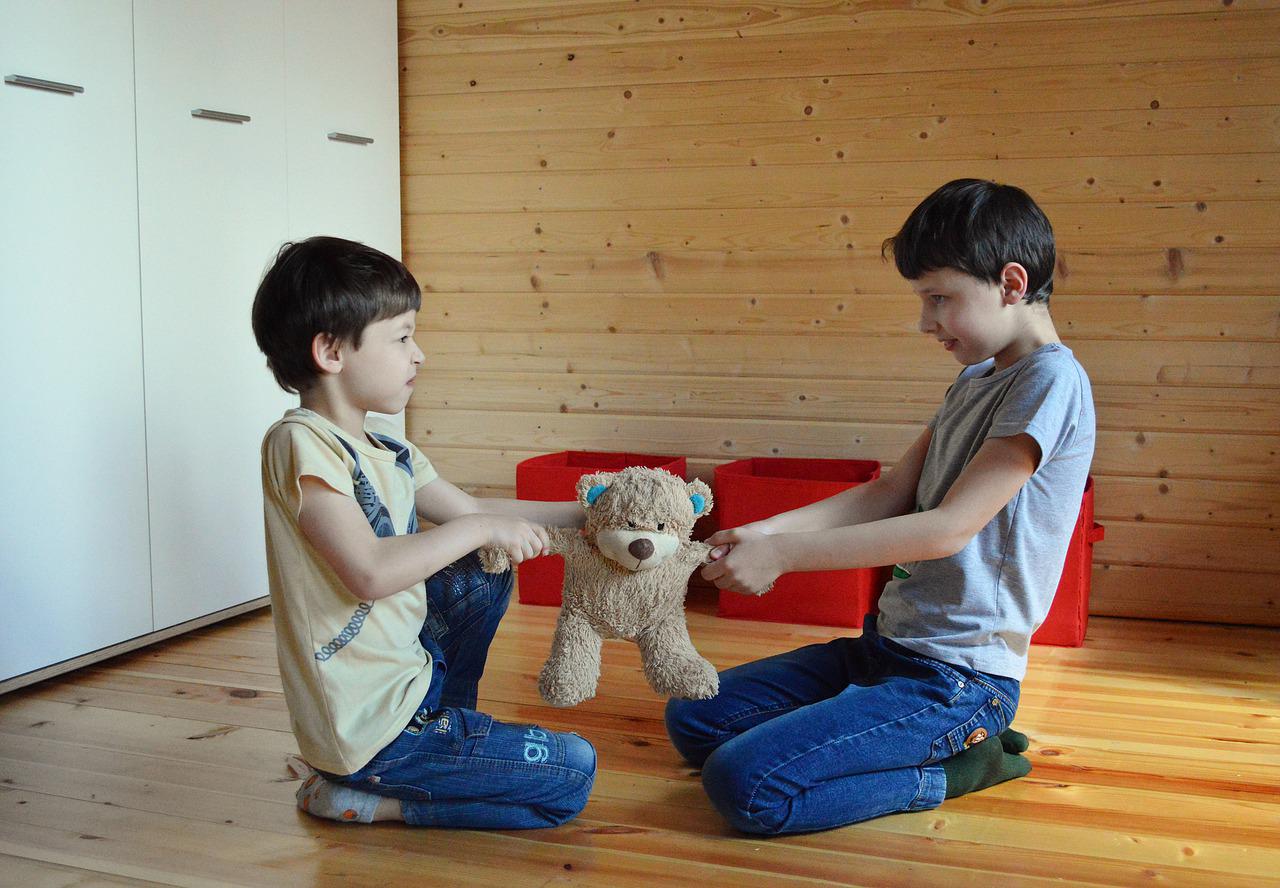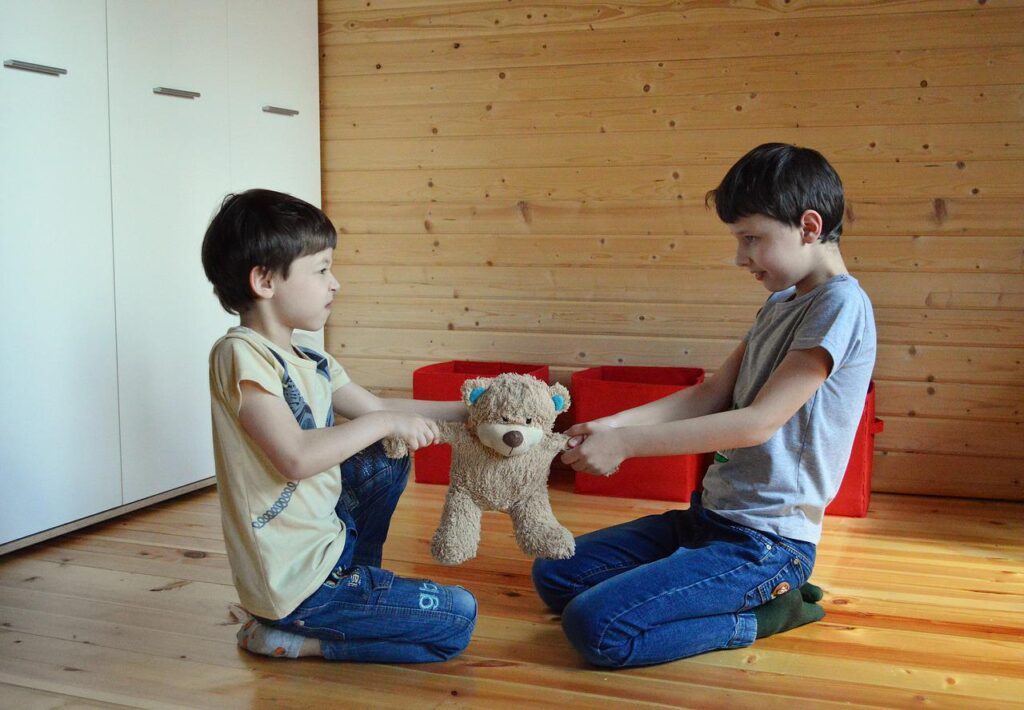

Screaming, beating, cursing and crying? Is this your daily routine with the kids? When I gave birth of my second child who is 5 years younger than my first one, I thought I will never go through fighting and sharing issues between them, but I was wrong. No matter what the age is for each, they still fight over toys, and anything else they can possess or use. This is what happens every day in almost every home, but the important question is how do we deal with these daily quarrels so that they do not cause anxiety and inconvenience to parents.
Take Advantage Of The Quarrels
It is important to know at the outset that quarrels are useful if we use them in a positive way to for example, teach the children how to control their emotions at the time of quarrels and control their actions to be more cooperative with their siblings. This needs training of course, and training needs time, patience and consistency. The main point is to prevent these small arguments to become enmity, hatred and revenge
When To Intervene?
Let your kids try to resolve the issue between them while you are watching. The parents should not interfere as soon as the argument starts, but in the event that the quarrel turns into physical assault or manual beating or insulting and shouting in a loud voice, then it is necessary to intervene to stop the argument, otherwise stay calm, watch from far and in case you see that they are not coming into an agreement, you can step in and with calm voice, ask what the issue is, listen from both kids and try to come up with a solution where every one is satisfied, This might be hard sometimes but everyone should stick to the rules.
Set Clear Rules And Be Consistent With Them
Arguments between siblings is something normal. But the reason vary. It can be motivated by jealousy, attention seeking, or imitation of the older siblings, it can also be having fun through fighting; yes some kids enjoy it!
Try to understand the circumstances and based on it find a solution with consistent rules that you should stick to first then you can expect your kids to do so as well. Because when you are not consistent, what is the value of making rules that no one respect including you as a parent?
For instance, if Jane and Tomas and fighting over a toy that Jane was playing with for over an hour, it’s time for her to handle it because it’s no longer her turn to play with it. She will cry and whine but next time she will learn that it’s sharing toys is based on turns.
Criticize The Behaviour Not The Child
When talking to your kids about the argument, avoid labeling them as the difficult, the aggressive or the rude. Focus on the behaviour itself and try to make them understand what is allowed and what isn’t when they are playing together. It’s a good idea to let them know prior they even start playing as they will know ahead of time what to expect if an argument happens.
Give More Time To Your Kids
Most of the negative behaviours that you see from your kids, are mostly coming from a lack of attention and a feeling of being not loved enough. Try to spend more time with your kids especially when they are playing together, It’s your opportunity to show the example of a safe and peaceful playtime. Giving enough time to your kids will help fill in their attention basket and will help them feel more secure and equally loved.

